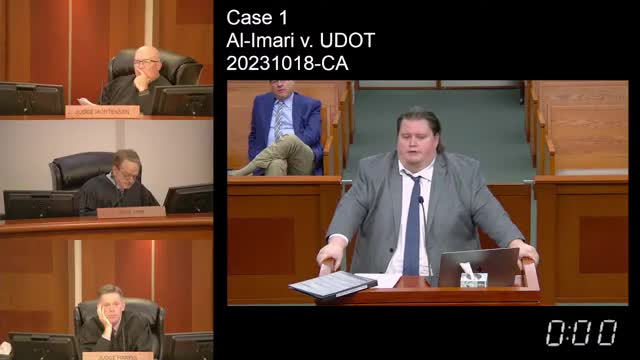Court Reviews Expert Disclosure Issues in Staker v. UDOT Case
August 19, 2025 | Utah Court of Appeals Live Stream, Utah Appellate Court, Utah Judicial Branch, Utah
Thanks to Excel Chiropractic and Scribe from Workplace AI , all articles about Utah are free for you to enjoy throughout 2025!

This article was created by AI using a video recording of the meeting. It summarizes the key points discussed, but for full details and context, please refer to the video of the full meeting. Link to Full Meeting
During the proceedings, attorneys debated whether the plaintiff had the right to file a supplemental expert disclosure without seeking court approval. The court examined the rules governing expert disclosures, particularly the requirement for parties to provide timely and complete information. A key point raised was whether the plaintiff could remedy deficiencies in their expert designation after a motion to strike had been filed, as stipulated by the rules.
The plaintiff's counsel argued that the rules allow for supplemental disclosures when a party learns that their previous disclosures are incomplete or incorrect. They contended that the court should permit the filing of a supplement to address any deficiencies pointed out by the opposing party. However, the opposing counsel maintained that the plaintiff had already received a full report from their expert, which should have informed their strategy and decisions regarding expert testimony.
The court's inquiry highlighted the importance of clarity in expert designations, emphasizing that these disclosures should provide sufficient information for the opposing party to make informed decisions about their case. The judges questioned the necessity of detailed opinions in the initial disclosures, suggesting that the purpose of such designations is to outline the expert's intended testimony without delving into exhaustive detail.
As the arguments unfolded, the court sought to clarify the potential harms faced by both parties due to the timing and content of the expert disclosures. The discussion underscored the balance between procedural compliance and the pursuit of justice, as the court navigated the complexities of expert testimony in legal proceedings.
The outcome of this case could set important precedents regarding the handling of expert disclosures in Utah courts, particularly in terms of the expectations for timely and complete information. The court's decision will likely influence future cases involving expert testimony and the procedural rules that govern them.
Converted from 20231018 Al-Imari v. UDOT audio file meeting on August 19, 2025
Link to Full Meeting
Comments
View full meeting
This article is based on a recent meeting—watch the full video and explore the complete transcript for deeper insights into the discussion.
View full meeting

